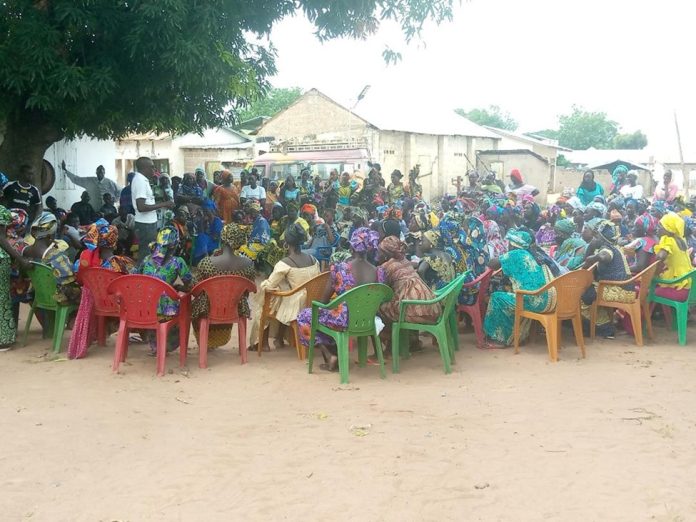By Ndey Sowe
Beneficiaries of the NaFa funded project in the Upper River Region (URR), recently expressed gratitude to World Bank and The Gambia Government for jointly funding the cash transfer project.
As the cash transfer commenced in the remaining seventeen Districts of the country, the said beneficiaries expressed appreciation in receiving the non-conditional cash transfer from the said program.
Most of the beneficiaries interviewed in the Region welcomed the project with much enthusiasm and gratitude as it comes to alleviate them from their poverty situations and to enhance their livelihoods.
“The project will help me create a backyard garden,” Koday Wally, a beneficiary from Bantunding village in URR told this reporter.
For some of the beneficiaries, the cash transfer will assist them to venture into animal husbandry by rearing small ruminants or into petty trading, which they said will continue to serve them even when the project is over.
According to officials of the project, recipients of the cash transfer benefitted from a training on how to utilise the monies given to them, after the project phases out.
The “Nafa” program according to officials, was piloted in the three Districts of Foni Bintang, Nianija and Wuli West, but it is subsequently being rolled out to the remaining seventeen Districts of the country.
A bi-monthly cash transfer of D3,000.00 and behavioural change activities are provided to approximately 15,000 extreme poor beneficiary households for a period of eighteen months.
The program is a non-conditional cash transfer with social and behavioural change communications on such issues as education, nutrition, family planning, gender based violence, maternal and child health programs and activities as well as entrepreneurship. If the project is able to pay a few times, people will be able to make savings and can use those savings for other businesses.
On the synopsis of the project, it was disclosed that the Nafa project came into existence as a result of the COVID-19 pandemic when the World Bank and the Government of The Gambia agreed that to mitigate the conditions of the people during pandemic, because there was need to do something on the economy of the Gambia and to help extremely poor households in the country.
Musa Dahaba, senior program officer at NaNA said “one of the objectives of the program is to improve the coordination of social assistance, and to provide temporary social assistance, with the inclusion of extreme poor households.”
“We want to build household resilience and ensure that the nutritional status of children in these households improve. This part of the project is selected from among poor households. This project is nine months and we do not want the beneficiaries to remain in the same status after the project. They should be using the money to buy food and save some,” Dahaba added.
Kebba Jatta, Regional Social Welfare Officer in Upper River Region (URR) said the Project is timely for the poor and will meet the basic needs of beneficiaries in terms of taking care of the needs of their families.
On why the project focuses only on rural households, Jatta said Districts differ in terms of poverty indicators. He said rural people are more vulnerable and this is very visible for people to see by looking at education, health services and social life.
Alagie Jatta, a Community Development Officer also in Basse URR, said the number of beneficiaries to benefit from the Nafa cash transfer in URR is three thousand, one hundred and five (3,105) households.
The National Nutrition Agency (NaNA), Department of Community Development and Directorates of Social Welfare are implementing the Nafa programme as part of the Gambia’s Social Safety Net Project, which aims to strengthen the coordination of social assistance activities and increase the inclusion of the extremely poor. The Nafa Program is a component of the Gambia’s Social Safety Net Project, a 31 million dollar project with the World Bank funding 30 million dollar, and 1 million dollars from the Government of The Gambia. The program is designed to promote continuity and harmonisation with other programs, by expanding an existing package of cash transfers with SBCC managed by NaNA to new Districts and Regions.
NaNA officials explained that the selection criteria are based on a Proxy Means Test (PMT) and a community validation on this was done in the remaining seventeen Districts across the country.





















